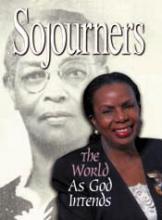I must admit I felt brutalized by the F-word rolling unremittingly off the lips of Joe Kavanagh (Peter Mullan), the recovering alcoholic in British director Ken Loachs latest film, My Name is Joe. But Joes limited linguistic options indicate his own limited choices in a world characterized by addiction, violence, economic inequality, uncaring bureaucracies, and relationships that yearn for transcendence.
We first meet Joe at an Alcoholics Anonymous meeting in one of the poorer sections of Glasgow. Joe is on the dole; his most meaningful activity is coaching a soccer team that must steal uniforms to have something decent in which to play. When Joe picks up his nephew Liam (David MacKay) for a match, he meets Glasgow social worker Sarah Downey (Louise Goodall) by virtue of a near-crash in an automobile. Sarah works with Liam and his wife Sabine (Anne-Marie Kennedy), young parents who are also recovering addicts. Joe and Sarah move tentatively toward a relationship, but it is threatened by drug deals, crime bosses, and the difficulty involved in staying clean.
Loachs use of troubled relationships to expose the destructive effects of class and poverty differs from his more overt treatment of political themes in other films. The characters in My Name is Joe hint clearly at the failures of the welfare system and the alienating power of class. There is considerable contrast between Joes bare-boned flat and Sarahs new house, and between Joes street smarts and life on the dole and Sarahs steady social services career. The two are drawn to each other, but their unfulfilled relationship is itself a metaphor for the inadequate way society addresses the problems that keep people like Joe in the world of addiction.
Read the Full Article
